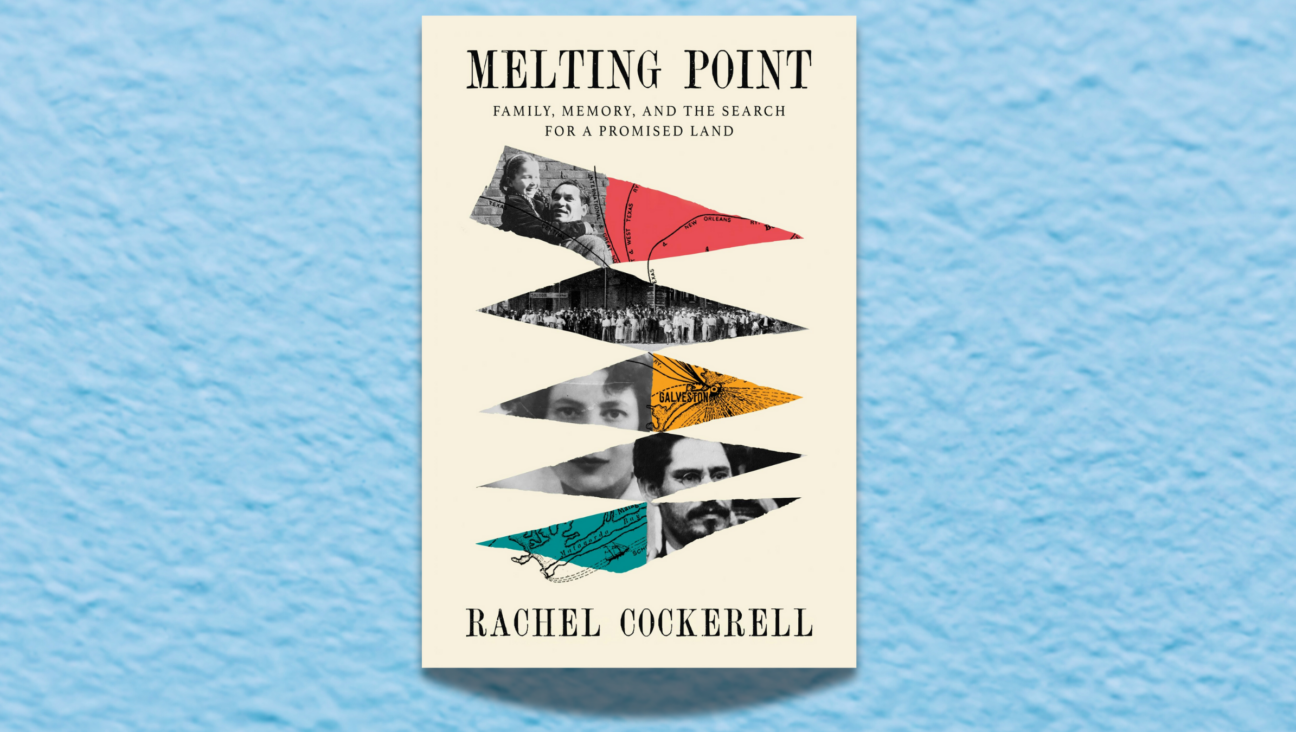Bringing the Lower East Side to Life

Earlier this week, Chris Moriarty wrote about writing her new book and songs of hope and failure. Her blog posts are being featured this week on The Arty Semite courtesy of the Jewish Book Council and My Jewish Learning’s Author Blog Series. For more information on the series, please visit:

One of my main goals in writing “The Inquisitor’s Apprentice” was to bring the Lower East Side to life for my own kids and make it a place they’d want to visit and learn more about. And what brings the past to life better than food, music, and theater?
Of course there’s a plethora of great books about every aspect of life on the Lower East Side. But here — as cultural comfort food for the soul — are my favorite books about food, klezmer, and Yiddish theater.
The best book bar none about food on the Lower East Side is Jane Ziegelman’s “97 Orchard: An Edible History of Five Immigrant Families in One New York Tenement.” Ziegleman turns bare bones menus into a comprehensive account of how immigrant families worked, shopped, ate, and lived on the Lower East Side. Her portraits of the five families are sensitive, beautifully written, and at times deeply moving. And the book is packed to the gills with gems of forgotten culinary history. Such as the fact that shmaltz was mostly made with goose fat until the 1930s, when Jewish gangsters began to run illegal chicken farming operations near the East River. Who knew?
There are a number of excellent books about klezmer, but my favorite is Henry Sapoznik’s “Klezmer! Jewish Music from Old World to Our World.” As someone who grew up in folksinging circles where people bragged about having known Bobby Zimmerman “back when” or made out in the back seat of a car with Pete Seeger (true story, seriously), I really enjoyed the way Sapoznik blends the history of klezmer with a firsthand account of the klezmer revival and its ties to the larger folk music scene.
Stefan Kanfer’s “Stardust Lost: the Triumph, Tragedy and Meshugas of the Yiddish Theater in America” might just be my favorite nonfiction book of the last decade. There is a charm to this book which is difficult to describe. Sure, Kanfer has great material to work with: the glamour of Thomashevsky, the star power of David Kessler, the terrible irony of Yiddish theater reaching its apex as an art form just as the gates to Ellis Island were slamming shut.
But Kanfer brings a light touch to his material, and a prose style that combines humor and tragedy almost as deftly as the great artists he writes about. “Stardust Lost” is one of the very few nonfiction books that I’ve actually reread just for the sheer fun of it.
Nahma Sandrow’s much heftier ” Vagabond Stars: A World History of Yiddish Theater” is less of an introduction to Yiddish theater than a sumptuous banquet for those who already know and love it. She chronicles major and minor figures, covering material that might only get a cursory mention in more general histories. Her writing is scholarly yet highly readable. And the book is a treasury of delicious stories about the flamboyant lives and scandalous loves of Yiddish theater’s famous and not-so-famous. If there are any Yiddish theater fans on your Hanukkah list, this is a book they’ll want to curl up with on a cold winter evening.
Chris Moriarty’s most recent book, “The Inquisitor’s Apprentice,” is now available.
The Jewish Book Council is a not-for-profit organization devoted to the reading, writing and publishing of Jewish literature. For more Jewish literary blog posts, reviews of Jewish books and book club resources, and to learn about awards and conferences, please visit www.jewishbookcouncil.org.
MyJewishLearning.com is the leading transdenominational website of Jewish information and education. Visit My Jewish Learning for thousands of articles on Judaism, Jewish holidays, Jewish history and more.
The Forward is free to read, but it isn’t free to produce

I hope you appreciated this article. Before you go, I’d like to ask you to please support the Forward.
Now more than ever, American Jews need independent news they can trust, with reporting driven by truth, not ideology. We serve you, not any ideological agenda.
At a time when other newsrooms are closing or cutting back, the Forward has removed its paywall and invested additional resources to report on the ground from Israel and around the U.S. on the impact of the war, rising antisemitism and polarized discourse.
This is a great time to support independent Jewish journalism you rely on. Make a gift today!
— Rachel Fishman Feddersen, Publisher and CEO
Support our mission to tell the Jewish story fully and fairly.
Most Popular
- 1

Fast Forward Ye debuts ‘Heil Hitler’ music video that includes a sample of a Hitler speech
- 2

Opinion It looks like Israel totally underestimated Trump
- 3

Culture Cardinals are Catholic, not Jewish — so why do they all wear yarmulkes?
- 4

Fast Forward Student suspended for ‘F— the Jews’ video defends himself on antisemitic podcast
In Case You Missed It
-

Culture Should Diaspora Jews be buried in Israel? A rabbi responds
-

Fast Forward In first Sunday address, Pope Leo XIV calls for ceasefire in Gaza, release of hostages
-

Fast Forward Huckabee denies rift between Netanyahu and Trump as US actions in Middle East appear to leave out Israel
-

Fast Forward Federal security grants to synagogues are resuming after two-month Trump freeze
-
Shop the Forward Store
100% of profits support our journalism
Republish This Story
Please read before republishing
We’re happy to make this story available to republish for free, unless it originated with JTA, Haaretz or another publication (as indicated on the article) and as long as you follow our guidelines.
You must comply with the following:
- Credit the Forward
- Retain our pixel
- Preserve our canonical link in Google search
- Add a noindex tag in Google search
See our full guidelines for more information, and this guide for detail about canonical URLs.
To republish, copy the HTML by clicking on the yellow button to the right; it includes our tracking pixel, all paragraph styles and hyperlinks, the author byline and credit to the Forward. It does not include images; to avoid copyright violations, you must add them manually, following our guidelines. Please email us at [email protected], subject line “republish,” with any questions or to let us know what stories you’re picking up.















